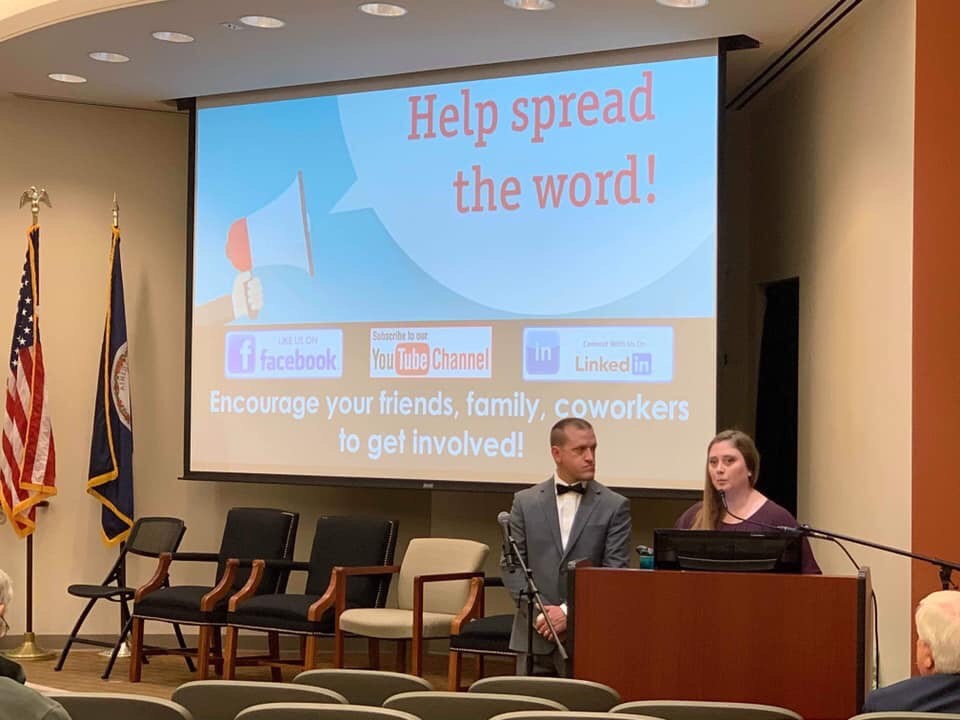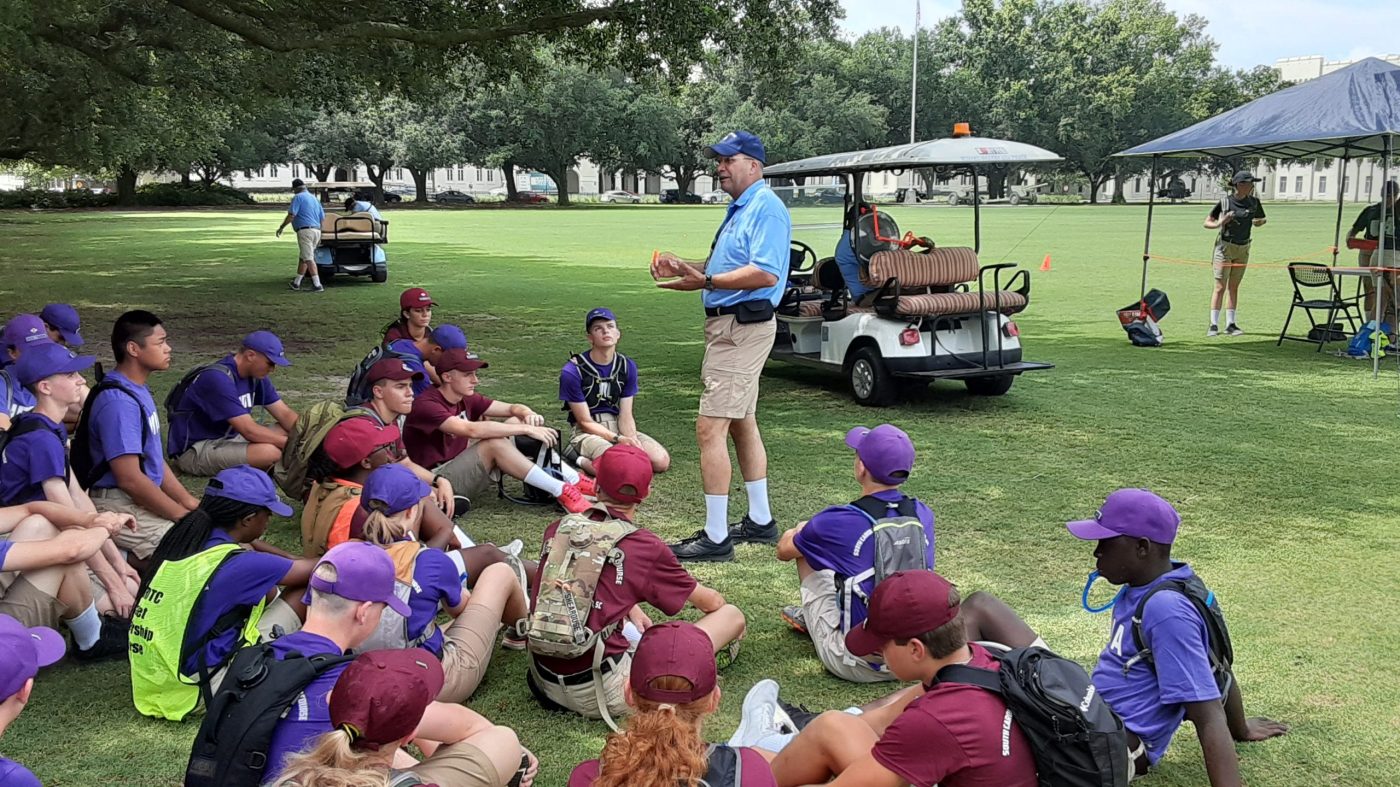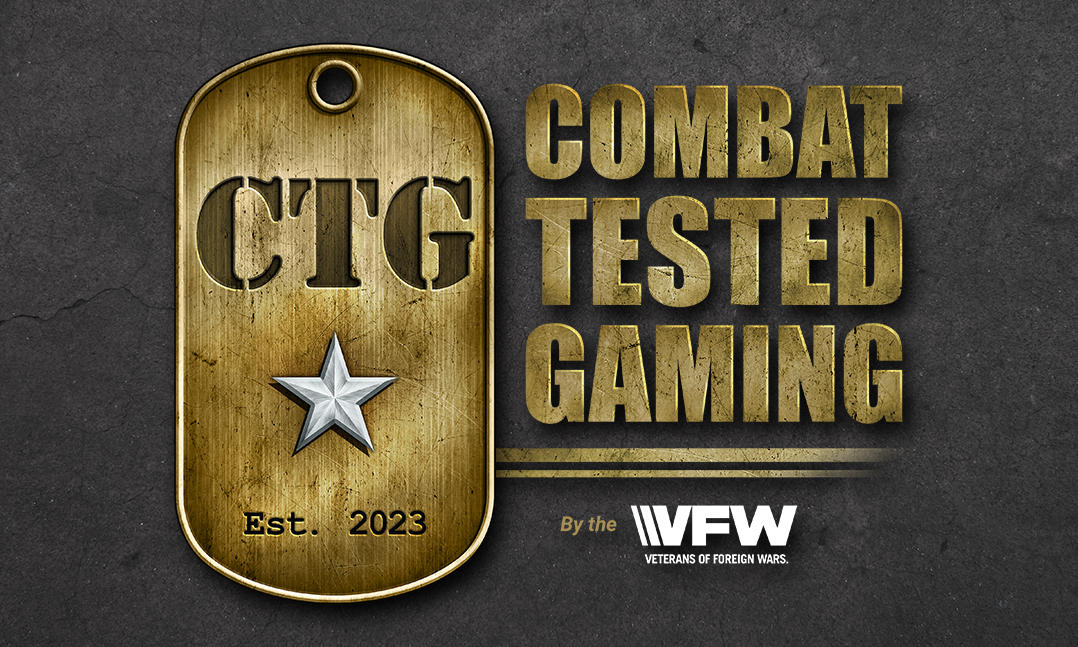The Northern Shenandoah Valley Community Veterans Engagement Board serves Veterans and their families with a focus area of the City of Winchester, Frederick County, Clarke County and Warren County, but does not limit assistance or networking based on location. Since the board was formed they have held four events, 10 board meetings and four joint meetings with Joining Community Forces (a community collaborative held quarterly in the region by the Red Cross).
At their most recent meeting, Ashley Moslak, vice chair of the group, said, “CVEBs are important because they help bridge the gap between services available in the community and the VA. They empower Veterans to transition into their communities and encourage the communities to welcome them back home. The goal is for these communities to become “Veteran friendly.” “Veteran-friendly” means that the Veterans mean something to the community and the community means something to the Veterans. A shared mutual respect and trust are key to this partnership. The community must invest in the Veterans as the Veterans have invested in their country.”

Lee Becker, Navy Veteran and chief of staff for the Veterans Experience Office, spoke to the group about the mission of community engagement boards and how their partnership with VA is so important to improving the overall Veterans experience.
Lee Becker (shown left) spoke to the community board about the importance of their role, along with updates from VA concerning the customer experience and other advances from the Veterans Experience Office.
The board also discussed the publication of a resource guide issued by the Community Veteran Engagement Board Task Force, a group of more than 40 representatives from local community groups, national veteran-serving organizations and VA. The board task force was composed primarily of members from local board groups, which are volunteer teams of local Veterans, advocates, Veteran-serving organizations and other civic leaders based throughout the country.
The resource guide offers recommendations on how local boards can maximize their effectiveness serving Veterans, their families, caregivers and survivors. The findings centered on selecting critical outcome areas that should be addressed within every community. These outcome areas include: outreach; mental health; access to health care; suicide prevention; homelessness; employment; and education.
“The CVEB Task Force pulled insights from veteran-serving organizations across the country to identify these seven critical issues,” said Jim Lorraine, president and CEO of America’s Warrior Partnership, a national nonprofit that participated in the CVEB Task Force. “Local CVEB groups are not required to dedicate their resources to these issues alone, but it is strongly recommended that they monitor these areas to ensure their community is laying the foundation for veterans to achieve the quality of life they deserve.”
The recommendations also detail the potential roles that local groups can take to facilitate success across these outcome areas. These six roles include serving as a center for information; coordinating the delivery of services to veterans; convening meetings within the community; collecting data for local Veteran-serving organizations; educating community groups on best practices for serving veterans; or serving as a direct leader overseeing community efforts to support veterans. In addition, the task force resource guide outlines the type of data that should be collected and analyzed to monitor the group’s impact within each key outcome area.

Members of the Northern Shenandoah Valley Community Veterans Engagement Board.
“The VA started the CVEB program to help local Veteran-serving organizations establish a platform where they could decide on the best path forward for supporting the unique needs of veterans in their community,” said Lorraine. “The task force was convened to provide local groups with guidelines on getting started, not requirements for how they need to operate. Every community has its own level of resources and capacity for serving Veterans, so each CVEB group has the freedom to decide how best to direct its activities.”
The complete resource guide compiled by the task force is available on the VA website. For more information on the initiative, visit AmericasWarriorPartnership.org/CVEB-Resource-Guide.
The Northern Shenandoah Valley Community Veterans Engagement Board maintains a Facebook page, LinkedIn and YouTube that have been kept up to date with relevant and important information.
Learn more about Community Veteran Engagement Boards and view the entire CVEB list at: https://www.va.gov/ve/communityEngagement.asp
Topics in this story
More Stories
The Air Force is seeking Veterans to serve as Air Force Junior ROTC instructors.
VFW’s Combat Tested Gaming tournaments bring together Veterans, active duty personnel and the gaming world.
How much do you know about VA care, benefits and services? Don’t miss out on what you've earned—check out the "2025 VA Federal Benefits Guide for Veterans, Dependents, Survivors, and Caregivers" handbook to learn more.






